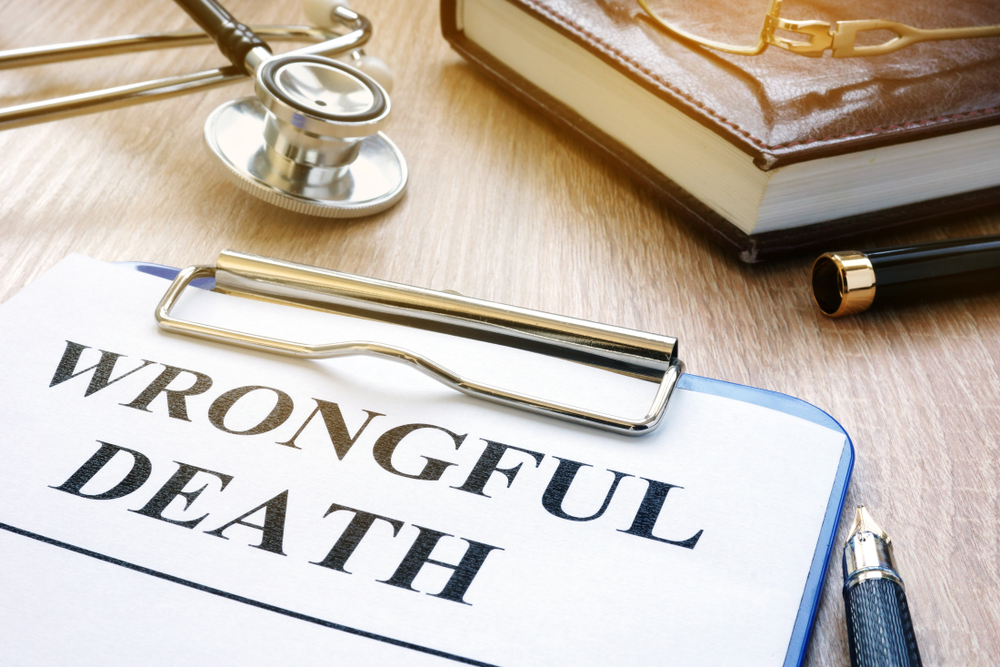No Fee Accident Lawyers
Devastating Losses Call for Exceptional Litigators
Our New Hampshire and Massachusetts wrongful death lawyers and attorneys explain that wrongful death is an umbrella term. The premature death of another individual due to someone else’s negligent conduct. The cause of the wrongful death can take many different forms.
Some examples are as follows. A physician commits medical malpractice by failing to diagnose a terminal cancer. Or an inattentive truck operator causes a fatal highway collision. Even unique fact patterns like a moped operator strangled by a low hanging utility wire. Or a school held responsible for failing to identify the warning signs of a student’s suicidality.
The key element that the wrongful death attorney needs to prove is as follows. Had the negligent conduct not occurred, the individual would not have passed away in the manner they did. We treat these cases with the utmost seriousness. There is no greater responsibility than representing a family who’s loved one has tragically passed away.

The governing law is New Hampshire RSA § 556:12. Section 556:12 Damages for Wrongful Death, Elements. (state.nh.us). There are three different causes of action that can be used to bring a wrongful death case. On behalf of the estate, the surviving spouse, or the surviving minor children. The most frequently used cause of action is a claim on behalf of the estate. It is initiated by the personal representative of the estate. A personal representative is an individual who has legal authority to act on behalf of the estate. They would have the authority to retain our firm and sign a HIPPA authorization to obtain the decedent’s medical records. Being a medical proxy alone is insufficient.
If the decedent has a will, the personal representative is the executor named in the will. If there’s no will, they must file a petition with the Probate Court. The personal representative does not have to be a spouse, or even a relative for that matter. Practically speaking, it is important that they are a close family member. They will be the face of the lawsuit.
Oftentimes our wrongful death attorneys are approached by family members who inform us that the decedent has no assets. Or they do not have the funds to pay a probate attorney. Or perhaps they do not want to responsibility of taking an estate through probate. Under these circumstances, our wrongful death lawyers can assist the personal representative. We can file a petition with the Probate Court to open the estate. This is for the sole purpose of investigating a wrongful death case. We draft a motion to the Probate Court when it’s time to settle the wrongful death claim. We ask the court to approve the settlement and allow us to distribute the settlement funds.
If the decedent has a will, the distribution will be in accordance with the will directives. Suppose the decedent dies without a will, or intestate, the distribution will be to the surviving spouse. If there’s no surviving spouse, the distributions will be to the surviving children in equal shares. Chapter 561 DESCENT, DISTRIBUTION, AND ADVANCEMENTS (state.nh.us)
According to RSA § 556:12, there are four types of damages. (1.) Conscious pain and suffering. (2.) Reasonable expenses (typically medical expenses and funeral expenses). (3.) The loss of life. (4.) The loss of earning capacity throughout the duration of the decedent’s expected life (minus cost of living expenses). Conscious pain and suffering and loss of life are the two most important categories. This is according to our wrongful death lawyers,
Conscious pain and suffering refers to what was endured by the decedent from the time of injury to death. An individual who dies instantaneously in a highway collision is going to have little conscious pain and suffering. This is opposed to someone who’s hospitalized for two weeks before death. Even patients who are on life support can recover for conscious pain and suffering. This depends on their GLASCOW coma scores which reflect their level of awareness. Loss of life refers to the subjective value of the decedent’s life. Ask 12 strangers what the is the value of human life is. You are going to see a wide range of answers. The individual’s age is the most important factor. A teenager’s loss of life is higher than someone who’s in their 90’s.
The surviving spouse can also recover for “loss of the comfort, society, and companionship of the deceased.” This is referred to as a “loss of consortium claim.” NH law caps the recovery at $150,000 for the surviving spouse. The surviving minor children can recover for “loss of familial relationship.” NH law caps the recovery at $50,000 for each surviving child.
/blog/wrongful-death-lawsuits/
/blog/fatal-crashes-in-lebanon-bring-into-question-the-born-alive-law/